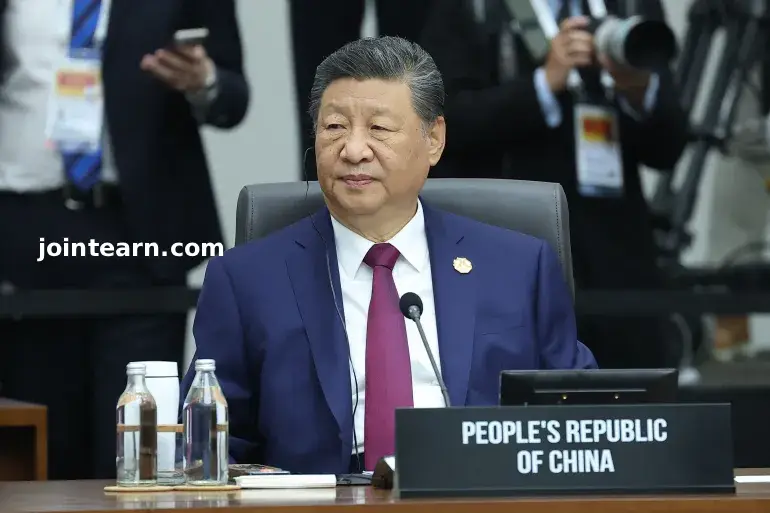
Chinese President Xi Jinping used the opening session of the Asia-Pacific Economic Cooperation (APEC) summit in Gyeongju, South Korea, to position Beijing as a defender of free trade and multilateralism, even as U.S. President Donald Trump skipped the forum.
Speaking on Friday, Xi emphasized the importance of global economic cooperation and supply chain stability in a world facing “rapid change” and “complex, volatile” conditions. His remarks underscored China’s effort to present itself as a reliable partner in global trade amid ongoing U.S.-China tariff disputes and attempts by Washington to decouple supply chains from Beijing.
“The more turbulent the times, the more we must work together,” Xi said, stressing collaboration in green industries, clean energy, and sustainable economic growth.
Xi and Trump: Contrasting Approaches
Trump departed South Korea a day before the summit after reaching bilateral deals with Xi intended to ease the escalating U.S.-China trade war. These agreements reportedly include increased Chinese purchases of U.S. soybeans and rare earth elements, coupled with tariff reductions.
The U.S. president’s absence highlighted his longstanding preference for one-on-one meetings and media-centered diplomacy over traditional multilateral forums. In contrast, Xi seized the opportunity to fill the leadership vacuum in the Asia-Pacific region, projecting China as a stabilizing force in global trade.
Diplomacy with South Korea, Japan, and Canada
During his first visit to South Korea in 11 years, Xi met President Lee Jae Myung to discuss denuclearization on the Korean Peninsula. He also met Japanese Prime Minister Sanae Takaichi, whose far-right nationalist positions, including visits to the controversial Yasukuni Shrine, have historically strained China-Japan relations.
Xi’s diplomacy emphasizes setting aside historical tensions to foster future economic and security cooperation. Additionally, he met Canadian Prime Minister Mark Carney to explore potential trade deals, which observers anticipate could be among the most substantive economic agreements of the summit.
Challenges Facing APEC
Leaders from 21 Asian and Pacific Rim economies are attending the APEC summit to address shared economic challenges, including:
- U.S.-China strategic competition
- Supply chain vulnerabilities
- Ageing populations
- The impact of AI and automation on employment
South Korean officials have been attempting to secure a joint statement endorsing free trade, although differing positions among member nations may result in a watered-down declaration, similar to the stalemate at the 2018 Papua New Guinea summit.
“The question really is, can APEC survive this age of U.S.-China rivalry?” noted Al Jazeera’s Jack Barton.
Xi’s Message to the World
Through his remarks and bilateral meetings, Xi positions China as a multilateral leader committed to economic globalization. Observers see his approach as both a response to Trump’s “America First” policies and a signal that China seeks to maintain supply chain stability, green technology growth, and regional economic cooperation.
As global markets monitor U.S.-China relations, the outcomes of APEC 2025 will likely influence trade dynamics, investment flows, and diplomatic alignments across the Asia-Pacific for the foreseeable future.


Leave a Reply